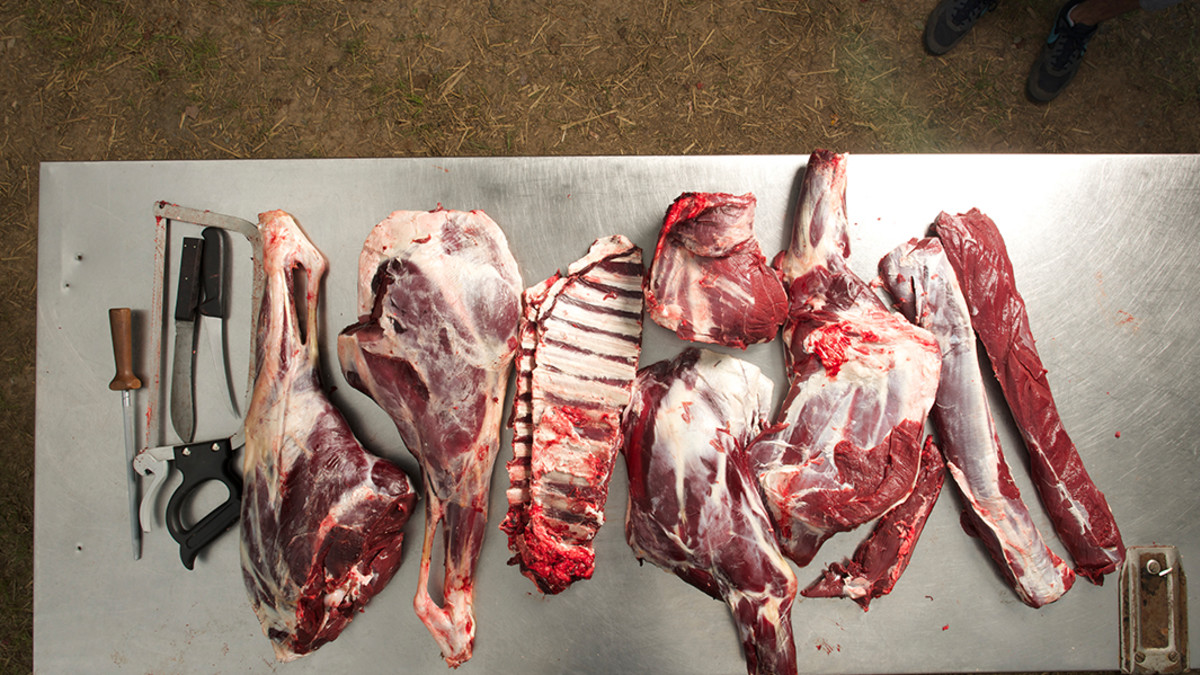
Meat is aged for two reasons, to tenderize it and to enhance flavor. When possible, this should be done with the hide on and the bone in. The hide protects the meat and prevents excessive drying. The bone keeps the muscles elongated, which helps prevent contraction and subsequent toughness.
Aging meat properly requires a period of 7-14 days, depending on the condition of the animal. Ideal temperatures for aging are between 34-37 degrees. This allows the natural enzymes in the meat to break down some of the complex proteins. Younger animals do not need to be aged as long; for yearlings, a period of 24 hours will often suffice.
Some wild game processors will hang meat for you, though they often charge fees of $10-$30 per day. Ideally we’d all have our own walk-in cooler, but unfortunately that’s not the case. However, you can do your own aging with standard household equipment. Whether you’re hanging your meat in an outdoor closet, shed, garage, basement, or from a backyard tree, keep a thermometer nearby to properly gauge the temperature.
When temps rise much above 50 degrees for an extended part of the day, you’ll have to find a different way to age the meat or just start the butchering process. Keeping a fan running to circulate the air will help keep temps down as will hanging the meat on the north side of a building. If you have a shed small enough than can be cooled by a window AC unit, try that during the heat of the day.
Another option is to put the meat in a standard refrigerator that’s cranked down to its coldest setting. Put some kind of wire rack on the shelves, racks used for cooling baking goods work well and place the quarters and large pieces of meat directly on top.
Don’t be afraid of some drying, but do watch for spoilage. Give it the poke and smell taste every day. If the meat takes on a bad odor or starts to look like something you wouldn’t want to eat, trim away the trouble spots and process the animal quickly and get it into a freezer.
Note:
Because of the volatile nature of bear and wild pork fat, you should never age bear or wild hog meat. Butcher it as soon as possible.




Conversation